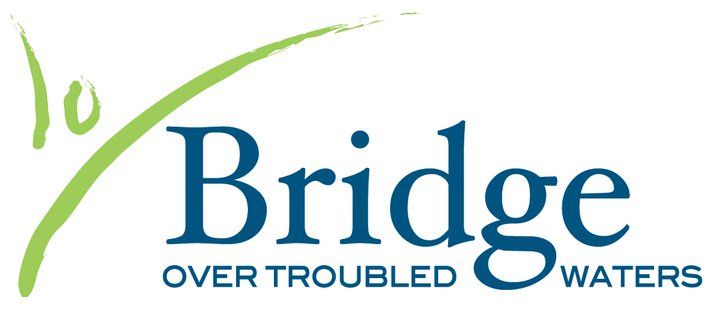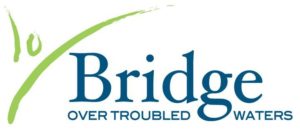
According to the U.S Department of Housing and Urban Development’s 2017 Annual Homeless Assessment Report to Congress, there are only about 500 unaccompanied homeless youths under the age of 24 in the city of Boston. However, this number only accounts for youths who were accounted for by shelters and other organizations and does not count youths who may be staying with friends temporarily or sleeping on the streets.
Bridge Over Troubled Waters, a Boston-based non-profit, is dedicated to transforming the lives of runaway, homeless and high-risk youth ages 14-24, through safe, supportive and encouraging relationships. They offer a number of programs ranging from immediate emergency services to long-term housing programs.
The Make a Difference Project was lucky enough to take a tour of the Bridge Over Troubled Waters facilities and we were so inspired by the scope of work that Bridge is doing to dramatically change these young lives. Here are just a few of the programs and services that BOTW provides to the youth of Boston:
Street Outreach and Mobile Medical Van
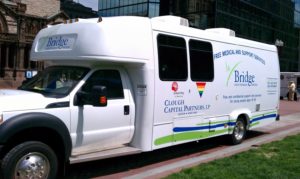
Bridge has a team of trained outreach workers that regularly visit areas of Boston and Cambridge where homeless youth are known to gather. They work to build trust through regular, consistent contact with the goal of providing additional resources to help them end their cycle of homelessness. If you’ve ever walked through the Boston Commons in the evening, you’ve probably seen Bridge’s innovative Mobile Medical Van parked right by the Park Street T station. The Van, which is the first of its kind in the nation provides critical care including medical attention, clothing, food, and referrals to Bridge services or other agencies.
Physical and Mental Health Services
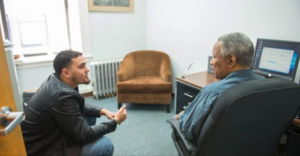
Bridge offers weekly medical and dental services free of charge to youth who come through their West Street Headquarters. These services are staffed by healthcare professionals from Healthcare for the Homeless and Tufts and Harvard Dental Schools. They also employ a team of licensed clinical counselors who are specially trained to deal with homeless and at-risk youth. Youth meet with a counselor upon arrival and the facility and can then set up appointments either in-house or at an outside agency with a referral.
Transitional Day Program
This program is a drop-in center where youths can meet their basic survival needs seven days a week. They are served a hot meal, can take a shower, access lockers and do their laundry. There are case managers available to help them obtain documentation papers such as IDs, transcripts, etc. There are also life skills workshops available as well as community dinners.
Education and Career Development Program
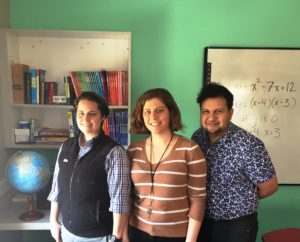
Many of the youths passing through Bridge’s programs don’t have a high school diploma. This is why they offer a comprehensive three-tier approach to academic and career success. The program includes classes to prepare youth to earn their alternative high school degree, guidance for those who wish to continue their education including financial aid incentives, and career development which offers open job search hours and job training in soft skills.
Housing
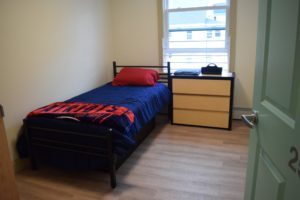
While Bridge Over Troubled Waters caters to needs beyond homelessness, the most critical need of the youth they serve is safe housing. Bridge has a number of living options available to youth at every stage of the program.
- Warming Center
- Initially open only in the winter months, the warming center has recently become a year-round overnight shelter for youth who are in immediate need.
- Emergency Residence
- The Emergency Residence Program is a short-term transitional program for homeless youth who commit to regular counseling, maintain 40 hours a week of work, school or both, save 70% of their income and work with case managers to obtain long-term housing. The youths live with roommates in dorm-like housing at the Bridge headquarters.
- Transitional Living Program (TLP)
- For those aged 18-24, Bridge offers a long-term residential program located just outside of Boston. At any given time, 12 young men and women will occupy these apartments for up to two years. They are required to maintain employment, have weekly meetings with a counselor and work with case managers on reaching their goals. They pay a minimal rent which helps them build credit and obtain a landlord recommendation (from Bridge.) Residents of the TLP can also use all of the services at Bridge.
- Single Parent House (SPH)
- The SPH program is an open-intake, voluntary transitional living program for pregnant and parenting homeless young women and their children. Serving 11 families at any given time, the program is the only one of its kind in Boston.
Since it was founded over 40 years ago, Bridge Over Troubled Waters has continued to provide life-saving services for the most vulnerable and at-risk youth in and around Boston. Their comprehensive programs focus not only on fulfilling basic survival needs but providing the resources and encouragement to move onward and upward in life.
